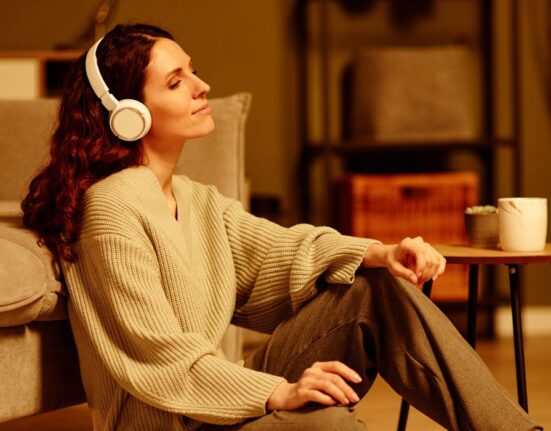Cleaning makes lots of people feel better because, in their minds, they are taking chaos and turning it into calm. Cleaning might ease clutter, give you a sense of control over your environment, and perhaps even demonstrate emotional resilience for some, while others may be avoiding emotional distress. Stress cleaning may provide some distraction from stress and an opportunity to regain a sense of control and calm, albeit for a short time.
Cleaning, however, may also conveniently mask long-standing unresolved feelings. This article explores the psychology of cleaning, what it means to escape into cleaning as an act of self-care, how cleaning can create a space for emotional regulation, and how to find balance. Discover the psychology of the mop and determine if your ritual is truly self-care, or just a way to avoid the chaotic mess of what truly needs your care and attention.
Read More: How Emotional Distractions Impact Sustained Attention and Memory
The Psychology of Scrubbing Away Stress
Many find that cleaning is an emotional release, providing structure and the feeling of control during times of upheaval. This may be a psychological reaction we call “stress cleaning.” Stress cleaning occurs naturally as our brain seeks predictability when things are chaotic. However, according to the field of psychology, cleaning goes beyond hygiene. This cleansing may, in fact, be something we routinely do whenever we are feeling anxious. Research indicates that visualising and engaging in clean-up activities can reduce stress and promote psychological healing.
Cardio recovery after any emotional strain can be enhanced through cleanses. Cleaning provides people with the action of self-soothing. Cleaning could also provide survivors of trauma a means to create “safety” when the world is unpredictable. However, when cleaning becomes compulsive and more of a distraction from difficult feelings, there can be a lot of “clean” or new spaces, but also missed opportunities to resolve their issues (Mosunic, 2025). The crux of this is intention: cleaning as mindfulness/self-care offers emotional regulation and control, while cleaning as a panicked escape may indicate avoidance (Lee, n.d.).
Read More: The Connection Between Cleaning and Mental Health
Avoidance in Disguise: When Cleaning Becomes Escapism
Compulsive cleaning can be a type of emotional avoidance, by means of the act of cleaning serving as a distraction from unpleasant feelings or stressful realities, rather than actually addressing the underlying conflict. When cleaning becomes a compulsive and ritualistic behaviour based on worry, guilt, or the obsession of wanting to be in control of something, it may indicate maladaptive coping mechanisms or even a pattern or escapism that deteriorates emotional processing and functional stability. Some signs that cleaning has become a maladaptive coping strategy or emotional avoidance are (Yakymchuk, 2025):
- Using cleaning to avoid tasks, or emotions (for example, if you were grieving, or burned out, you might clean instead of completing an important assignment).
- When the environment is not perfectly clean, people experience high levels of anxiety, guilt, or shame, even if it is only slightly messy.
- Having a low tolerance for messiness and making rituals to excessively clean your environment (such as endlessly over-wiping surfaces, endlessly vacuuming the same spot), these activities are clearly excessive compared to the situation at hand.
- Self-care deprivation through cleaning, including curtailing social interactions, time with loved ones, and sleep deprivation. Can feel social isolation, rejection, depression, guilt, or emotional exhaustion or fatigue from one emotional blockage to another.
- Only deriving temporary relief while cleaning, and receiving no pleasure or long-term satisfaction, while reinforcing the cycle of compulsive cleaning behaviour.
There are even times when people may avoid cleaning altogether because of the fear of getting contaminated or causing contamination during the cleaning process, which is also a compulsive avoidance behaviour as recognised in OCD diagnostic patterns. This demonstrates that both types of avoidance patterns, over-cleaning and under-cleaning, can arise from the same obsessive fears and avoidance behaviour (Disease of Cleanliness and Meticulousness, 2021).
Read More: Attachment Patterns Across Relational Contexts: A Psychological Overview
From Chaos to Control: Cleaning as a Tool for Emotional Regulation
For many, cleaning and decluttering may just be household chores, but to them, these practices are pathways from chaos to calm. Organising a drawer or wiping down those surfaces is a concrete way to regain control when emotions are heightened. There is something satisfying about changing disorder into order, particularly because you see those results right away. The transition from disorder to order provides immediate gratification and achievement, which contributes to alleviating mental overwhelm.
Numerous studies report that clutter increases cortisol and stress levels while tidy spaces reduce stress and help people achieve greater focus and emotional regulation [Cleveland Clinic]. Cleaning mindfully—paying attention to the details of our senses: scent, sound, and movement—typically brings on a parasympathetic state, therefore creating a relaxation response similar to meditation. When individuals pour anxiety and hyperactive energy into action, they have a chance to experience a sense of mastery over their surroundings that may potentially culminate in additional emotional regulation. When approached intentionally, cleaning becomes less an escape and more a sanctuary for clarity, calm, and resilience.
Read More: Yoga and Meditation Practitioners Deal with Negative Emotions More Effectively
Finding Balance: Productive Distractions vs. Passive Coping Mechanisms
“Cleaning can be stress-relieving, and can be a productive coping mechanism, particularly when it emotionally feels like everything is out of control.” Tidying, uncluttering, or cleansing stagnant and forgotten mental or physical spaces can be organised and restful, and cleaning can calm stress–like shedding a cortisol overcoat. (Decluttering Your Life: How Cleaning and Mental Health are Connected With Dr. Dawn Potter, 2021).
Cleaning’s confused nature and sensory feedback, i.e. Cleaning product smell and wiping the same area, can be a strategy for creating grounding, a mindfulness of sorts, that helps the nervous system settle. When done with intention and mindfulness alongside other activities, cleaning can shift from a mere distraction to enhancing emotional regulation and contributing to well-being. Cleaning can be a problem when you move from a focus on productivity or assistance to a compulsive need that stems from anxiety, perfectionism, or avoiding feelings when you are cleaning.
Indicators include the time spent cleaning, thinking about a mess or feeling distressed when there is one, and neglecting relationships and self-care. In some cases, the individual’s cleaning (i.e. cleansing) rituals are associated with obsessions about contamination or strict moral scrupulosity, and reinforcing avoidance will not lead to healing (Hunt, 2021). Intent is key–cleaning when it is a choice increases the likelihood of mastery, while cleaning when it is an urge may signal emotional avoidance. When performed alongside rest and emotional processing as a balanced habit, it will likely remain productive.
Read More: Mindfulness Meditation has a Positive Effect on Mental Health
Conclusion
Cleaning can be a refuge, and a trap. When overwhelmed with emotion, scrubbing or sorting can give us a tangible sense of control over something material. Even for a few minutes to an hour, it allows us to create order from chaos and provides genuine psychological relief. This can definitely be a normal and productive coping strategy – one that you can also try to use deliberately as a means to cope with your feelings and restore calm, and to get through the distress.
In this sense, cleaning when emotionally triggered has its own sense of power. Yet, it is behind the cleaning ritual that there may very well be avoidance if it is a means of distraction to ignore emotions or feelings, or if trauma remains unresolved. For your well-being, it is very important to remain mindful and aware of what the sponge/mop represents for you at that moment/time. Are they about grounding yourself in the experience of cleaning/organising yourself out of discomfort? Instead of mastering your emotions and your cleaning supplies, it’s about balance – when to use the mop or sponge, and when to just sit for a while with the mess, and gently heal.
Read More: How Does Trauma Affect Brain Function?
FAQs
1. Why do people clean when under duress or when feeling overwhelmed?
A sense of control and order can counter the chaos of life, so cleaning gives focus. Cleaning, and the results achieved, such as a spotless kitchen or organised closet, can be calming, releasing dopamine, and bringing about a sense of mindfulness, regulating and relieving anxiety.
2. How do I know that my cleaning is healthy and not avoidable?
Avoidance of difficult emotions is signalled when cleaning is done; it is a sign that there is a lot of anxiety. Neglecting rest, social connections, and daily responsibilities signals either avoidance or excessive behavioural control.
3. Is compulsive cleaning a disorder of OCD?
Yes. Compulsions can range from an obsessive compulsive disorder (OCD), where the fear of becoming morally immaculate or contaminated is central. While stress cleaning is voluntary, these behaviours are compulsive and significantly disrupt daily life.
4: How can I find a healthy balance with cleaning as a coping tool?
Use cleaning mindfully and in moderation. Create a timer and schedule breaks, monitor your feelings in the moment, and broaden your coping toolkit. If cleaning becomes unmanageable, it’s time to consult a mental health professional.
References +
Brady, K. (2020, March 24). Why Cleaning And Organising Is So Therapeutic When We’re Stressed. HuffPost. Retrieved September 14, 2025, from https://www.huffpost.com/entry/coronavirus-stress-cleaning-organizing_l_5e792b57c5b6f5b7c5498ecb
Decluttering Your Life: How Cleaning and Mental Health Are Connected with Dr. Dawn Potter. (2021, June 16). Cleveland Clinic. Retrieved September 14, 2025, from https://my.clevelandclinic.org/podcasts/health-essentials/decluttering-your-life-how-cleaning-and-mental-health-are-connected-with-dr-dawn-potter
Disease of Cleanliness and Meticulousness. (2021, December 23). NPİSTANBUL. Retrieved September 14, 2025, from https://npistanbul.com/en/disease-of-cleanliness-and-meticulousness
Hunt, E. (2021, April 7). How Understanding My OCD Helped Me Manage It | NAMI: National Alliance on Mental Illness. National Alliance on Mental Illness (NAMI). Retrieved September 14, 2025, from https://www.nami.org/obsessive-compulsive-disorder-and-related-disorders/how-understanding-my-ocd-helped-me-manage-it/
Lee, W. (n.d.). Actual Cleaning and Simulated Cleaning Attenuate Psychological and Physiological Effects of Stressful Events. Retrieved September 14, 2025, from https://pmc.ncbi.nlm.nih.gov/articles/PMC11925691/
Morin, A. (2023, November 3). Coping Skills for Stress and Uncomfortable Emotions. Verywell Mind. Retrieved September 14, 2025, from https://www.verywellmind.com/forty-healthy-coping-skills-4586742
Mosunic, C. (2025, August 13). Why cleaning may boost your mental health, according to psychology — Calm Blog. Calm. Retrieved September 14, 2025, from https://www.calm.com/blog/psychology-of-cleaning
Yakymchuk, M. (2025, January 14). What is Escapism? A Guide to Healthy and Unhealthy Escapism. Mentalzon. Retrieved September 14, 2025, from https://mentalzon.com/en/post/2360/what-is-escapism-a-guide-to-healthy-and-unhealthy-escapism













Leave feedback about this